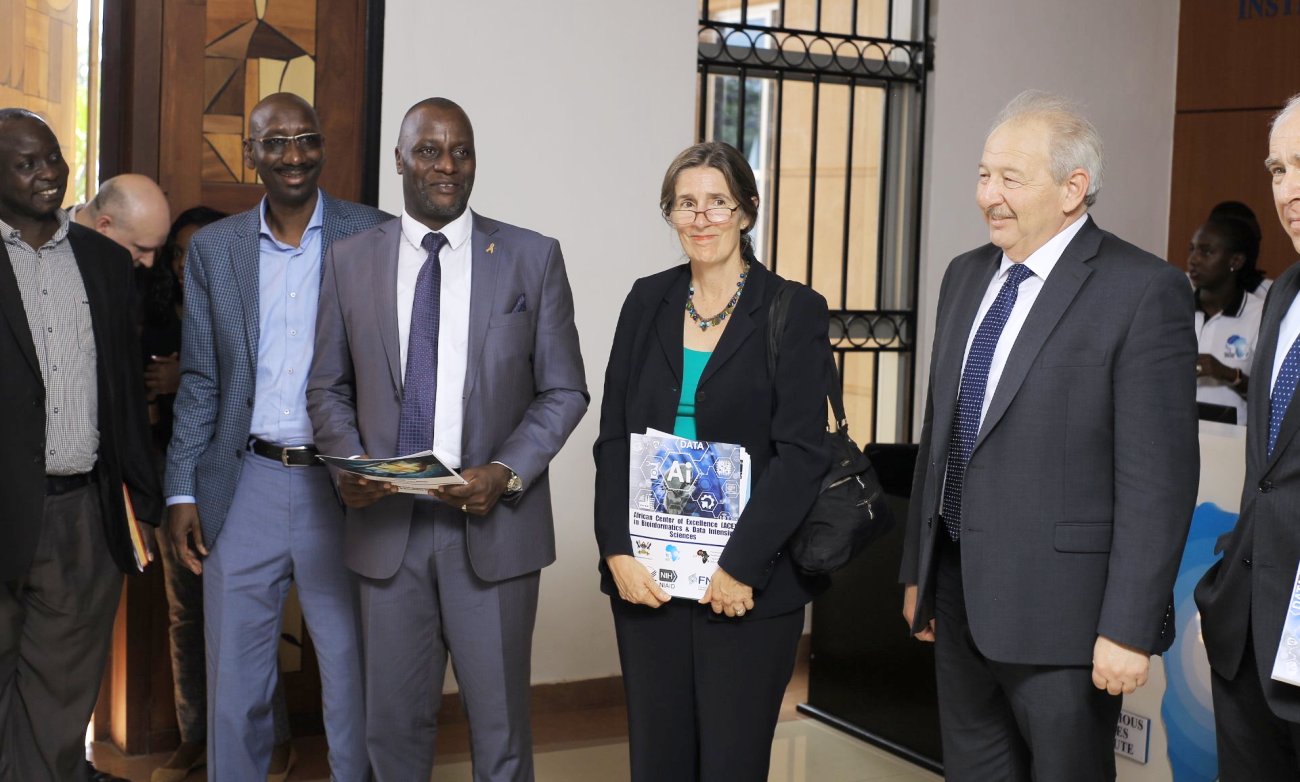On Thursday, 21st March 2019, the Infectious Diseases Institute (IDI) and the Colleges of Health Sciences (CHS) and Computing and Information Sciences (CoCIS) in partnership with the US Government’s National Institute of Allergy and Infectious Diseases and the Office of Cyber Infrastructure and Computational Biology (NIH/NIAID/OCICB) launched the African Centre of Excellence (ACE) in Bioinformatics and Data Intensive Sciences at the IDI-McKinnell Knowledge Centre, Makerere University.

The launch was presided over by the United States Deputy Chief of Mission in Kampala, Ms. Colette Marcellin. Also present at the launch were the Deputy Vice Chancellor (Academic Affairs)-Dr. Umar Kakumba who represented the Vice Chancellor, Prof. Barnabas Nawangwe, Members of the IDI Board led by Chairperson-Rev. Prof. Samuel Luboga, Executive Director IDI-Dr. Andrew Kambugu and representatives from NIH/NIAID/OCICB, key among them Mr. Michael Tartakovsky-Chief Information Officer NIH/NIAID.
The first of its kind outside the US and on the Makerere Campus, the ACE will be a centre for computation biology and big data analysis. Guests at the launch were treated to a tour of the state-of-the-art facilities consisting of a Virtual Reality (VR) room complete with the most advanced equipment and software, a Tele Learning Centre featuring world-class projection and acoustic equipment and the high performance computing cluster. The ACE also features a collaborative room with collaborative spaces and amenities.

The ACE will support the delivery Masters, PhD and postdoctoral level training in bioinformatics as well as research and development for private researchers and research institutions in the region. Other services to be provided by the ACE include; human and pathogen DNA sequencing for private individuals and researchers, short-term trainings in bioinformatics, biostatistics and image processing as well as VR infrastructure and services.
With the ACE now launched, Makerere University is truly on the path to becoming a thought leader of knowledge generation for societal transformation and development in Africa.
Article by Public Relations Office

 General2 weeks ago
General2 weeks ago
 Agriculture & Environment2 weeks ago
Agriculture & Environment2 weeks ago
 General1 week ago
General1 week ago
 Health2 weeks ago
Health2 weeks ago
 Research2 weeks ago
Research2 weeks ago





